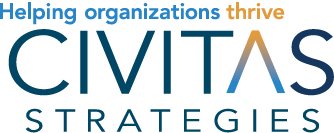How to Find a Tax Preparer
I often hear family child care providers ask at my workshops, “How can I find a tax professional who understands my business?”
I wish this was an easy question to answer.
There are many tax rules unique to family child care. Unfortunately, not all tax professionals understand what they are. As a result, they may make mistakes on your tax return.
You want a tax professional who does other family child care tax returns and keeps up with changing tax rules.
Here are some tips on where to look for a tax professional:
The next best thing to do is to ask your fellow providers if they believe their tax preparer is doing a good job for them. You may also want to contact your local family child care association and your local child care resource and referral agency to see if they can give you some names.
The National Association of Enrolled Agents has a listing of their members on their website. An Enrolled Agent (EA) is someone who has passed an IRS examination and is likely to be familiar with tax issues affecting small businesses such as yours. An EA can also represent you in the event of an IRS audit – 202-822-6232.
The National Association of Tax Professionals has a listing of their members on their website. Members of this professional association include individual tax preparers, EAs, accountants, attorneys and financial planners – 800-558-3402.The IRS Volunteer Income Tax Assistance (VITA) program offers free tax help to low to moderate income taxpayers ($50,000 net income and below). Unfortunately, many VITA sites will not help you with your business tax forms. To find the VITA site closest to you, call 800-906-9887.
Once you find a tax professional you want to feel confident that he or she is correctly filing your tax return. My book – the Family Child Care Tax Companion is designed for child care providers who use tax professionals. It is a series of worksheets tied to specific IRS tax forms that you can use to compare against what your tax professional puts on your tax return. It is the perfect tool to help you identify potential errors – before your taxes are filed – and contains help on resolving problems with your tax preparer.
Image credit: https://www.cnbc.com/2018/03/29/how-an-hr-block-tax-preparer-spends-his-11-hour-days-during-tax-season.html
Tom Copeland - www.tomcopelandblog.com

